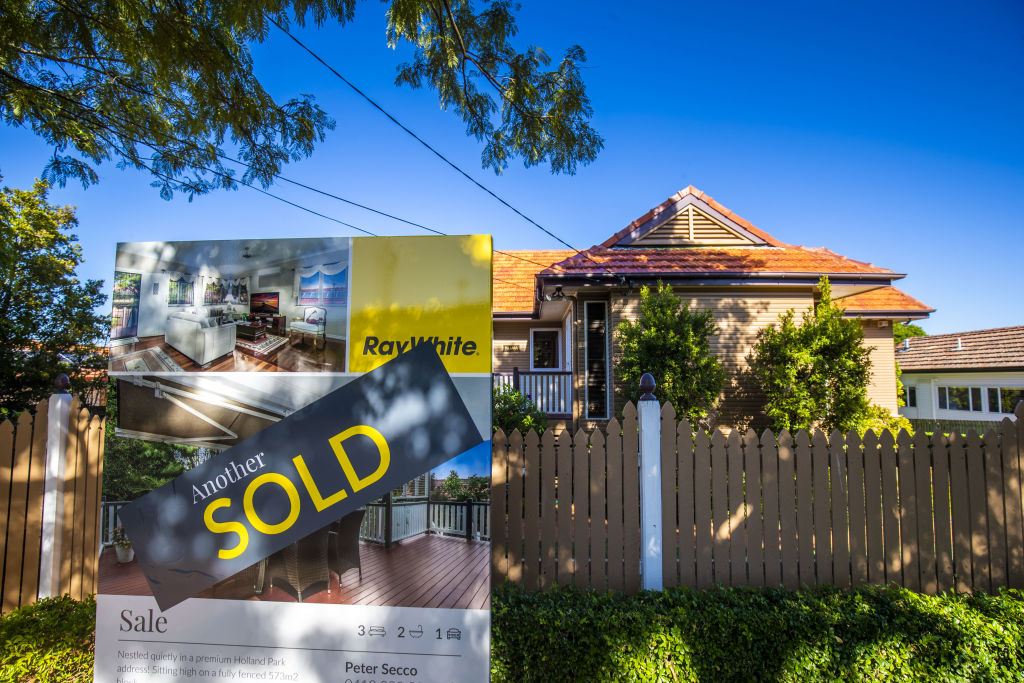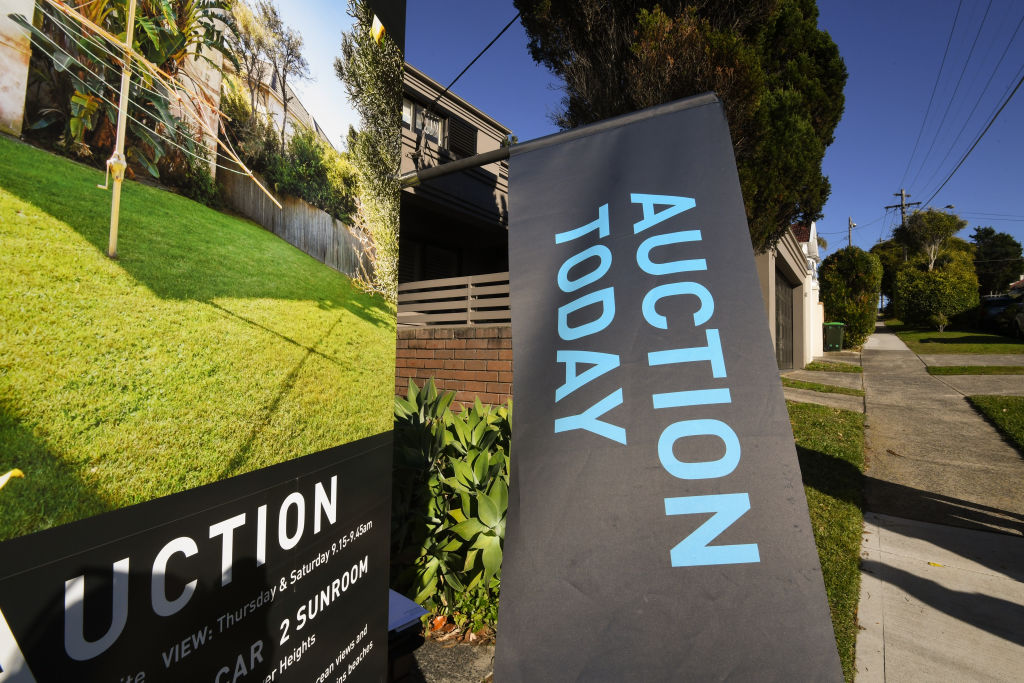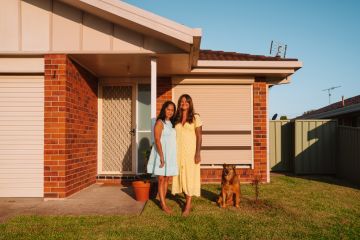'A terrible tax': Is it time to abolish stamp duty?

Stamp duty is back in the spotlight as the federal government draws up a raft of emergency plans and structural reforms to get the economy back on track after the devastation wrought by COVID-19.
Many key figures are urging the government to abolish stamp tax as an unwieldy weight on both the property market and people’s flexibility, making homes unaffordable for first-time buyers, and creating barriers for those wanting to move closer to work, upsize or downsize.
However, others argue that now isn’t the time for such sweeping change, when state governments are using stamp duty revenue for a major series of funding measures to soften the blow of the pandemic.
“Stamp duty is a terrible tax, it should be repealed and this is the perfect time to do it,” said Dr Shane Oliver, AMP Capital chief economist.
“It will have to be a gradual removal and replacement with some kind of land tax so later buyers aren’t unfairly affected.

“The problem with stamp duty is that it’s a massive impost on a single transaction which inhibits economic decision-making in a less-than-optimal way. But land tax would be levied on the value of land and applied to all landholders equally and be done in a much fairer way.”
The critical issue is the timing. With the Reserve Bank predicting the economy will shrink up to 10 per cent in the first half of this year, hours worked to plummet by 20 per cent and unemployment to remain over 6 per cent for the next couple of years, the danger is that stamp duty’s abolition could prove a deflationary move.
Yet Reserve Bank governor Philip Lowe this week said, in planning the recovery, the first on the list of reform measures was “the way we tax income generation, consumption and land”.
It’s widely believed Dr Lowe was referring to a series of reports commissioned over the years with proposals to raise less money from state conveyancing duties on property transactions and income tax in the future, and more from state land taxes and GST.
Domain Group economist Trent Wiltshire co-authored a Grattan Institute report in 2018 on how to improve housing affordability, and recommended axing stamp duty in favour of a broad-based property tax.
He said removing stamp duty had the almost unanimous support of economists, academics, the Productivity Commission, Infrastructure Australia and government tax reviews.
Now, he still feels the same, but has doubts about the timing of such a move.
“Long term, reform will create benefits for the economy and boost the Gross Domestic Product significantly,” he said. “But those benefits take a while to accrue and whether now is a good time to do it … It’s not something that will provide a short-term boost to the market.
“Abolishing stamp duty and replacing it with a broad-based, flat-rate land tax is a policy that should be pursued and could be part of a whole bunch of reforms once we emerge from this, but it isn’t a policy that will help the market rebound over the next few months, and that’s what we need.”
The arguments for axing stamp duty include that it’s an inefficient tax, levied only on those buying property in any particular year, and makes property more expensive for both purchasers and then, by association, renters. It thus also becomes an obstacle for people – and businesses – wanting to move and is also expensive to collect, costing 70 cents for each dollar raised, according to Treasury modelling.
On the plus side, it raises a great deal of revenue for state governments which they now have never been more in need of, to arrest some of the economic fall-out from the pandemic.
But that sum does rise and fall, sometimes quite dramatically, according to the number of property transactions taking place, and the strength of the property market, making planning difficult.
State budget papers show that in NSW, for instance, stamp duty revenue in 2018-19 was $7.4 billion, down 24 per cent from 2016-17’s $9.7 billion. In Victoria, it slumped by 13 per cent over the same period to $6 billion in 2018-19.
Ken Morrison, chief executive of The Property Council of Australia, pulls no punches.
“There’s a consensus among economists and policy-makers that stamp duty is the worst thing in Australia,” he said. “It distorts behaviour, cripples job creation, lowers growth, and locks people into housing that might not be appropriate for their needs.
“Really, by anyone’s standards, it’s a terrible tax. There’s a lot of debate at the moment about corporate tax, but stamp duty is two times worse for the economy than company taxes and sets a new economic benchmark for worst taxes.
“We need to get the economy going and facilitate construction growth, and getting rid of stamp duty will help.”
However, he doesn’t like the idea of replacing it with a land tax as he says the rate would have to be too high to replace the revenue raised by stamp duty.
“Let’s rewind the decision to five to six years ago when we had GST being put on the table as the centrepiece for reform and getting rid of some of our worst taxes,” he said. “That’s what we would encourage governments to do as they move into reformist mode.”
Economic and policy consultants Urbanised Advisory Services is also advocating for the abolition of stamp duty. Managing director Stephen Albin says the whole system of property taxation needs urgent attention, and the time is ripe.
“It’s a bit of a mess at the moment and we should take the opportunity in the existing circumstances to really review the tax system and create different ways or securing revenue,” he said. “There should be more stable sources of revenue so the ebbs and flows don’t have such a major impact on budgets, and ways of making housing more affordable.
“There are good arguments for land tax to replace stamp duty and the Productivity Commission and Treasury are now looking at how they are going to levy taxes in the future. This is the perfect time for reform.”
Stamp duty is certainly becoming an ever-greater cost of buying homes. According to Domain figures, stamp duty paid on a median-priced home went up between 2004 and 2019 by 102 per cent in NSW to a high of $42,269, 183 per cent in Melbourne to $44,164, and 189 per cent in Brisbane to $11,013.
“It’s an awful tax,” said Adrian Kelly, national president of the Real Estate Institute of Australia. “It’s most particularly a drag on first-home buyers, with the ANZ ceasing to offer mortgage insurance products – which I suspect the other banks will follow – which means they’re have to raise a 20 per cent deposit plus stamp duty.
“So it’s becoming an even bigger problem in the current climate. It also reduces the mobility of everyone else with the housing stock, including older people wanting to downsize to a smaller home, and people wanting to change jobs. We need a broader tax base, and one that doesn’t provide so many impediments to buying a home.”
We recommend
We thought you might like
States
Capital Cities
Capital Cities - Rentals
Popular Areas
Allhomes
More







